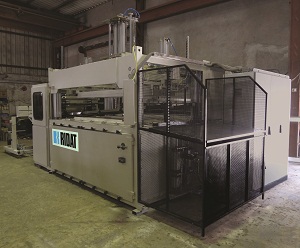At Techtextil in Frankfurt from May 24-26, Lenzing Textil presented new applications of its Tencel cellulose fiber
for the automobile sector, which were developed to fulfill the automobile market’s call for eco-friendly models and vehicle recycling.
According to the manufacturer, Tencel, available in fiber, powder and other forms, can be used on cars as it is eco-friendly and possesses properties suitable for automotive use.
For instance, in a powder form, Tencel offers ideal processing conditions as a reinforcement fiber in plastic parts, Lenzing Textil said. The fiber is odorless during processing as well as in the end product. It can also improve the impact strength of plastics due to its high fiber elongation of 10%, compared to the 2% in glass fiber, for excellent crash performance.
Tencel can also be blended with all the conventional fibers and enhances automotive textiles with moisture management properties. Lenzing Textil said a test with car seats shows that as little as 30% of Tencel in the textile blend results in a drier seat climate and considerable improvement in driver and passenger comfort.
Furthermore, Tencel can be used in all electronic applications, from air conditioners to audio equipment, as a separator in condensers. Separator papers with Tencel can be made to be particularly thin for higher performance. Also, the cellulose fiber can be incorporated into oil and fuel filters.
“Tencel supports the trend towards more nature in cars and, with its fiber properties, boasts numerous advantages for the automobile sector,” explained Friedrich Suchomel, Automotive Project Manager. “We started the project five years ago after speaking to all the international car manufacturers to understand their requirements. Sustainability was one of their most important criteria. Tencel provides a response to these needs,” he continued.
Tencel is a kind of cellulose fiber made from wood, a natural replenishable raw material. The wood stems from eucalyptus plantations which are planted especially for industrial use. Eucalyptus grows very quickly and is farmed without any artificial irrigation. It can also be planted on idle land and does not compete with agricultural land for the production of foodstuffs. And the fiber manufacturing process is eco-friendly, as production is based on a physical dissolution process with almost complete solvent recovery, according to Lenzing Textil.
Source : www.adsalecprj.com






